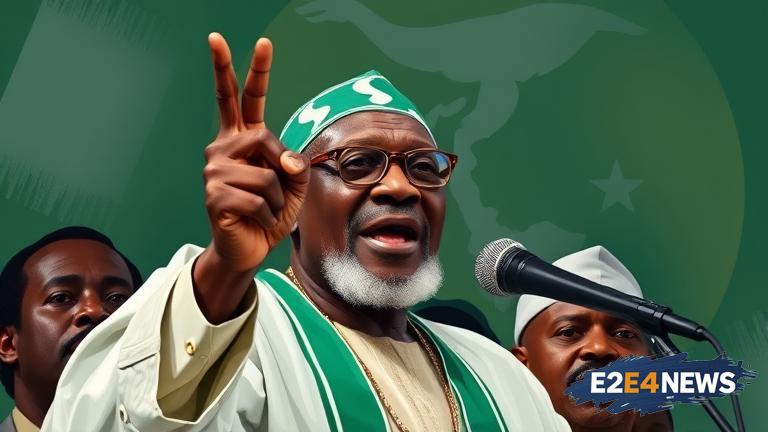Nigerian President Bola Tinubu has made a bold claim that corruption has ceased to exist in the country since he assumed office. This statement has generated a lot of attention and debate among Nigerians and the international community. The president’s assertion has been met with skepticism by many, who argue that corruption is still a pervasive issue in the country. Despite this, President Tinubu remains adamant that his administration has made significant strides in combating corruption. He has pointed to various initiatives and policies implemented by his government as evidence of its commitment to transparency and accountability. However, critics argue that these efforts are insufficient and that more needs to be done to address the root causes of corruption. The president’s claim has also been questioned by opposition parties and civil society organizations, who argue that corruption is still rampant in the country. They point to various scandals and allegations of corruption involving government officials and politicians as evidence. President Tinubu’s statement has also sparked a discussion about the definition of corruption and how it can be measured. Some argue that corruption is not just about financial corruption, but also about other forms of abuse of power and privilege. Others argue that the president’s claim is an overstatement and that corruption is still a major problem in Nigeria. The debate surrounding President Tinubu’s claim has highlighted the need for a more nuanced and comprehensive approach to addressing corruption in Nigeria. It has also underscored the importance of transparency and accountability in government and the need for a free and independent press to hold those in power accountable. Furthermore, the claim has raised questions about the role of the international community in supporting Nigeria’s efforts to combat corruption. Some have argued that the international community has a responsibility to support Nigeria’s efforts to combat corruption, while others argue that this is a domestic issue that Nigeria must address on its own. In addition, the claim has sparked a discussion about the impact of corruption on Nigeria’s economy and development. Many argue that corruption is a major obstacle to Nigeria’s development and that it has hindered the country’s ability to achieve its full potential. Others argue that corruption is not the only challenge facing Nigeria and that other factors, such as poverty and inequality, must also be addressed. The claim has also raised questions about the effectiveness of Nigeria’s anti-corruption agencies and the need for reform. Some have argued that these agencies are not independent enough and that they are not given sufficient resources to effectively combat corruption. Others argue that the agencies are doing their best with the resources they have, but that more needs to be done to support their efforts. In conclusion, President Tinubu’s claim that corruption has ceased to exist in Nigeria has sparked a lively debate and discussion about the issue of corruption in the country. While some have welcomed the president’s commitment to combating corruption, others have expressed skepticism and argued that more needs to be done to address the root causes of corruption. Ultimately, the claim has highlighted the need for a more nuanced and comprehensive approach to addressing corruption in Nigeria and the importance of transparency and accountability in government.





